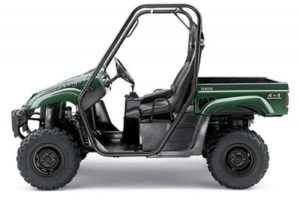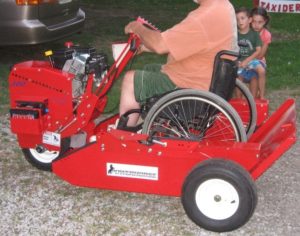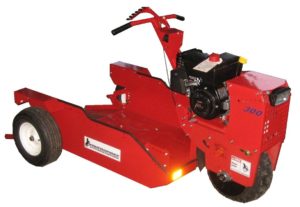It is a common misconception that after a disabling injury or illness, the only trade a person is suited for involves sitting behind a desk typing on a computer all day, every day. This is NOT true. People with disabilities can thrive in a physical occupation they love. Every day, people with missing limbs, back pain, or chronic illnesses go to work at their skilled jobs. All it takes is a burning desire to work and the tools to adapt to the new normal.
Every year, 4% of farmers suffer an injury that limits their ability to complete necessary farm tasks. Couple this with chronic illnesses and an aging farm population. Farming is a physical occupation. Farmers need to be able to access their buildings and fields easily and quickly in order to feed their livestock, maintain equipment, check crop conditions, and carry out other tasks, regardless of the weather, terrain or whether their backs hurts.


Golf carts or utility vehicles are a great option for many farmers with knee, hip or ankle difficulties or bad backs. They are readily available, travel on a variety of terrain, and are usually easy to climb into. However, utility vehicles and golf carts are challenging for those using wheelchairs because frequently transferring from wheelchair to vehicle and back to wheelchair is tiring and wearing on the arms.


The Powerhorse has 4-inch ground clearance for operating on rough terrain, and can go 15 mph. It features front-wheel drive, 5.5-horsepower electric start engine, and hydrostatic transmission for smooth forward/reverse control, and is designed to allow the operator to stay in his or her wheelchair. It has even been used as a mobile hunting blind.


There are as many tools as the mind can imagine to help farmers with disabilities to keep farming. There is a growing lack of workers in skilled trades, because there are few people with the skills and dedication required to do these jobs. A disability does not need to end a career.
For personal assistance in learning about equipment and tools of a trade that could help you continue doing your job in spite of injury or illness, contact Ned Stoller at 888-354-3289
